Table of contents
Key Takeaways
Understanding Hormonal Imbalance in Women
Hormones are our body’s chemical messengers that travel through our bloodstream, tissues, and organs. They perform many different functions including telling our body what to do and when. Hormones may work slowly and over time, but they are powerful. An imbalance occurs when there is too much or too little of a hormone. This imbalance can disrupt numerous aspects of an individual’s life.
There are many different reasons why a woman might be experiencing hormonal imbalances, including but not limited to:
- Medications
- Eating disorders
- Stress
- Tumours (Cancerous or benign)
- Diabetes
- Hyperthyroidism (Overactive thyroid)
- Hypothyroidism (Underactive thyroid)
- Addison’s disease
Hormonal imbalances are the leading cause of infertility in women and can also be the cause of disorders such as polycystic ovary syndrome (PCOS). Balancing women's hormones is possible with the right vitamins, nutrients and minerals, many of which are available in supplements and treatments.
10 Symptoms Of Hormonal Imbalance
Here are 10 symptoms of hormonal imbalances you should pay attention to.
Identifying Hormonal Imbalance: Irregular Menstrual Cycles
Women’s menstrual cycles typically occur every 21–35 days. An unpredictable cycle is a common sign of hormonal imbalance. If you’re experiencing unpredictable menstrual cycles, you should speak with your doctor. They could be a sign of PCOS which is a hormonal disorder that affects more than 1.4 million Canadian women. Women with PCOS might also experience prolonged periods.
An irregular period might also be caused by anemia, which is a lack of iron in the body. Typically women experience iron deficiency after their periods due to the loss of blood. If the iron is not replaced, it may affect the body's production of reproductive hormones.
The Link Between Heavy Menstruation and Hormonal Imbalance
The intensity of monthly periods changes from woman to woman. While some women have light periods, others regularly experience heavy periods. This is normal. However, should you unexpectedly begin experiencing heavy periods when you normally don’t, it is important to speak to your doctor. There are many reasons you may be experiencing a heavier period than normal, not least of which being the possibility of a hormonal imbalance. Too much estrogen can lead to a thickened uterine lining. Heavy bleeding can also be a sign of hypothyroidism.
Hirsutism: When Hair Growth Indicates Hormonal Imbalance
Hirsutism is the excessive and unwanted growth of facial hair on women. This hair is usually a thicker, darker, coarser layer of ‘peach fuzz’. Hirsutism can be the result of a condition called virilization, which is when women have an imbalance of their male sex hormones called androgens. Androgens are produced in women’s adrenal glands, and some in the ovaries.
Vaginal Dryness and Estrogen Levels
The vagina has a thin layer of moisture that provides an alkaline environment for sperm to survive while they make their way to the egg for fertilization. If the vagina does not have this layer, not only can intercourse be painful, but the sperm has less chance of survival. This will directly affect the chance of fertility. Vaginal dryness can be caused by a drop in a woman's estrogen hormone levels.
The Painful Reality of Dyspareunia and Hormonal Changes
Painful sex, or dyspareunia, is the recurring pain in the genital area or within the vagina during intercourse. As mentioned above, this pain can be caused by vaginal dryness due to a drop in estrogen levels. It can also be caused by several other factors including menopause, endometriosis, IBS, UTIs, yeast infections and more. If you experience recurring pain during intercourse it is worth seeking help from your doctor.
Chronic Fatigue: A Symptom of Hormonal Disruption
Unusual and sustained fatigue has been linked to hormonal changes in the part of the brain that controls the thyroid. Ongoing fatigue along with depression, anxiety, and insomnia are all signs of low progesterone levels which can be caused by hypothyroidism and PCOS. You should speak to your doctor about a diagnosis and, if applicable, treatment.
Hormonal Roots of Hair Loss in Women
A lot of women lose hair after menopause and childbirth due to the many changes in their hormones. If you are experiencing hair loss but neither of the aforementioned causes apply to you, it is important you contact your doctor. Your hair loss might be a sign of a hormone imbalance or thyroid problems such as hyperthyroidism or hypothyroidism.
Persistent Acne and Hormonal Imbalance in Women
50% of women aged 20–29 and 25% of women aged 40–49 have acne. Acne is often due to fluctuations in hormones. If you have a hormone disorder such as PCOS then acne may be a symptom. Acne can also point to increased levels of androgen hormones in women.
Navigating Breast Discharge and Hormonal Excess
A discharge from your breasts when you are not breastfeeding can be a sign that your brain is producing too many hormones. This overproduction of hormones can begin to affect your ovulation and the length of your menstrual cycle. Medical treatment and hormone balancing supplements are usually effective for a woman's hormone balance.
Hormonal Imbalance and Weight Management Challenges
If you’re gaining weight at a seemingly uncontrollable rate then this can be a symptom of a hormone imbalance. Weight gain in women can be attributed to stressed-out adrenals or an imbalance of hormones associated with PCOS.
Solutions for Hormonal Imbalance: Elan Healthcare Approaches
Elan Healthcare produces supplements with effective vitamins and minerals for treating hormonal imbalance in women. Our products help women and their partners on their fertility journey, as well as managing PCOS symptoms.
Visit our products page to see more about our supplement’s different features and ingredients.
You can also get in touch with us on the Contact Us page where we are happy to answer specific questions.
References:
1 - 11 unexpected signs of hormonal imbalance by Northwell Health. Published Nov 2018.
2 - Diagnostic Criteria for Polycystic Ovary Syndrome: Pitfalls and Controversies by Lujan ME, Chizen DR, Pierson RA. Published Jun 2010.
3 - Virilization updated by Wisse B, Zieve D, Conaway B. Reviewed May 2019.
4 - Painful Sexual Intercourse (Dyspareunia) by Harvard Health. Published Mar 2019.
5 - What You Need to Know About Dyspareunia (Painful Intercourse) by Giorgi A, medically reviewed by Sullivan D. Updated Feb 2020.
6 - Endometriosis by Hopkinsmedicine.org, Johns Hopkins Medicine. Publish date unknown.
7 - Progesterone and Progestins by Hormone.org, Endocrine Society. Published Sept 2021.
8 - Adult Acne by Aad.org, American Academy of Dermatology Association. Publish date unknown.



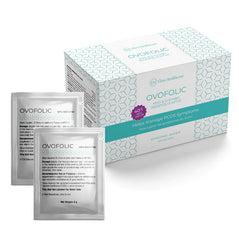
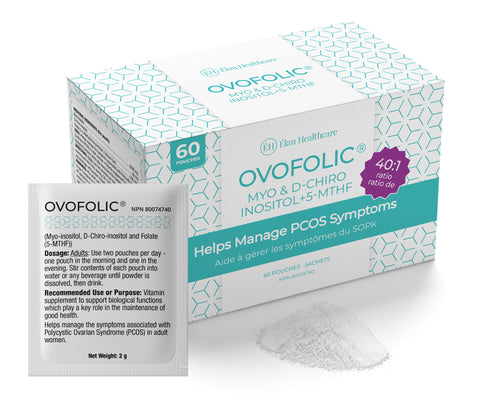


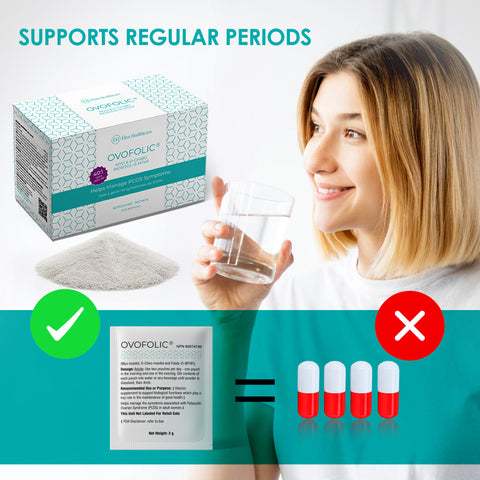
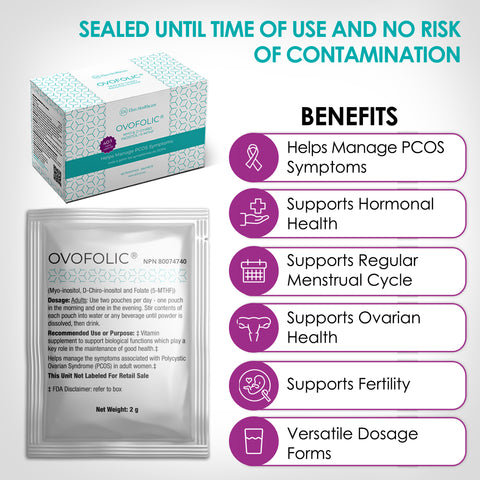

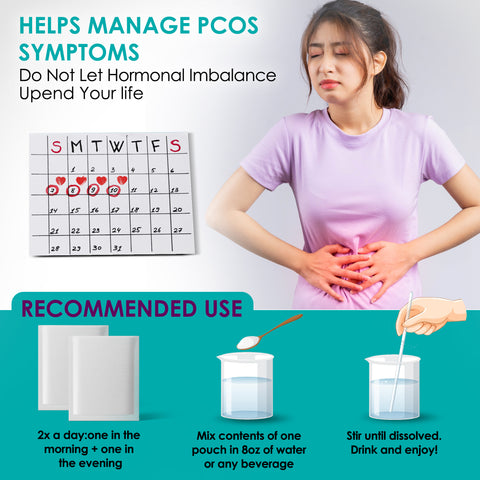

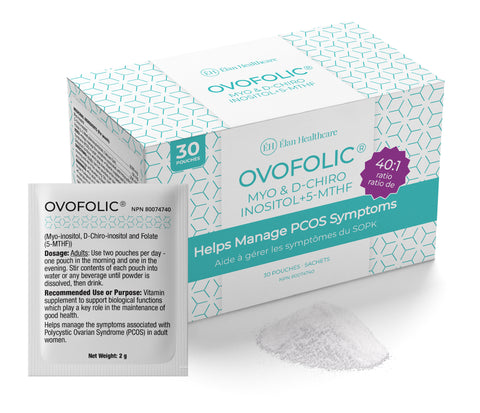









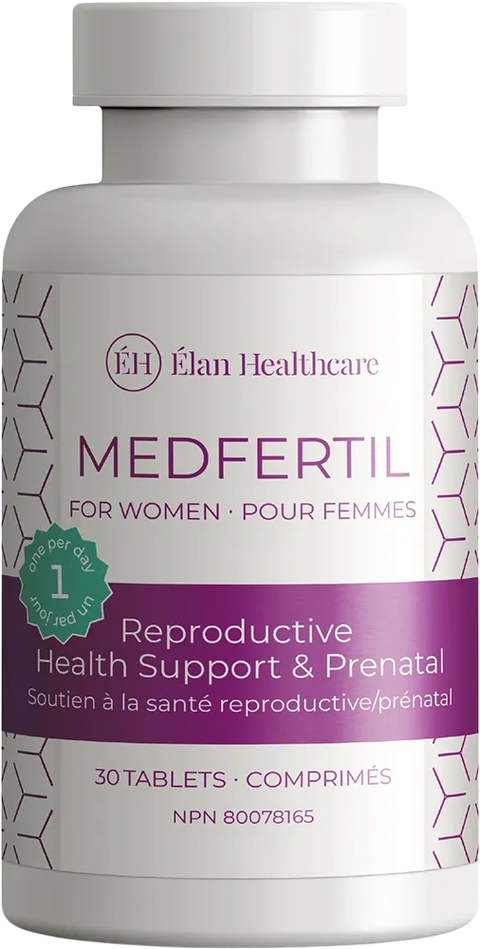

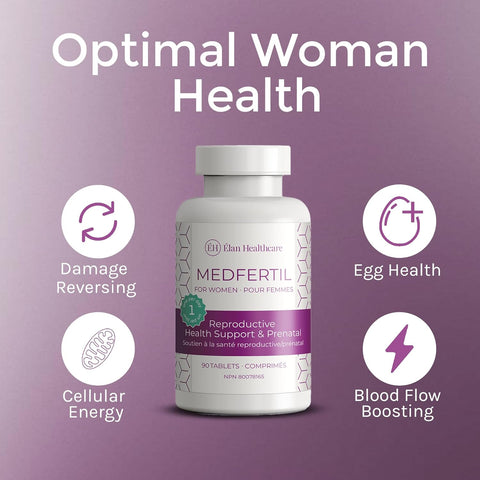
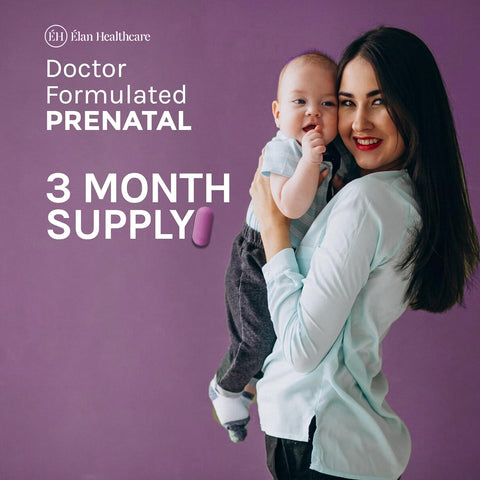
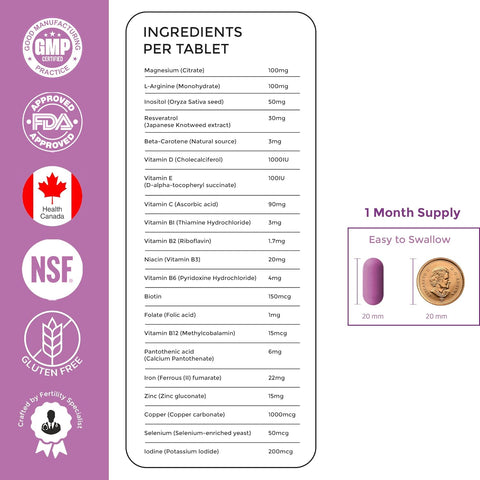

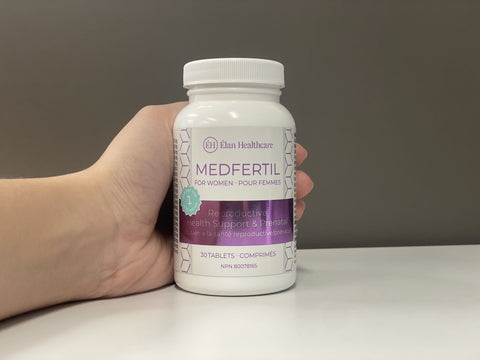

No comments yet.
There are no comments for this article. Be the first one to leave a message!
+ Open to leave a Comment